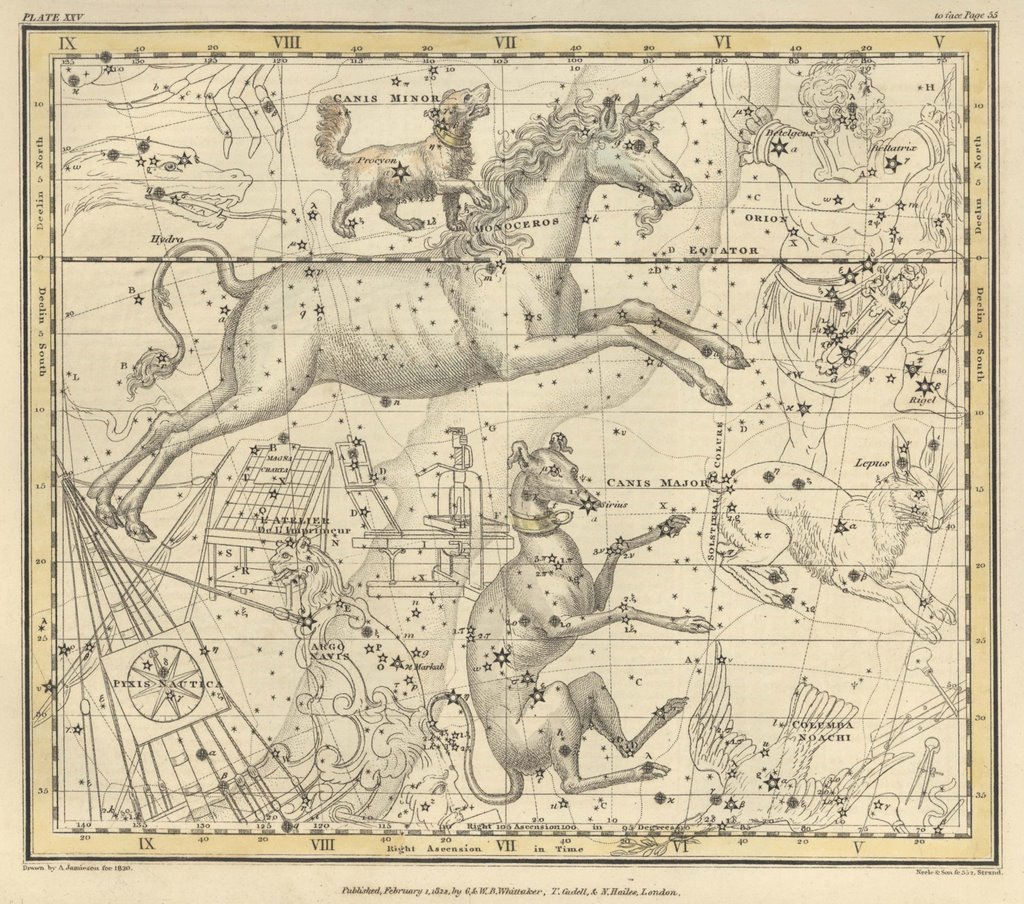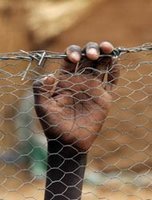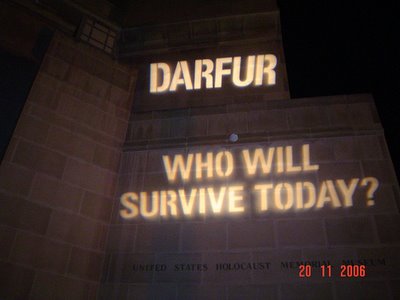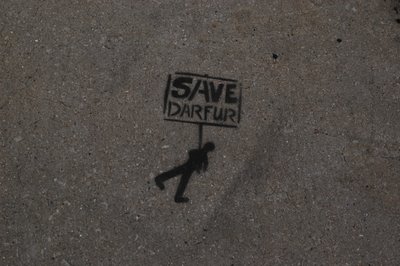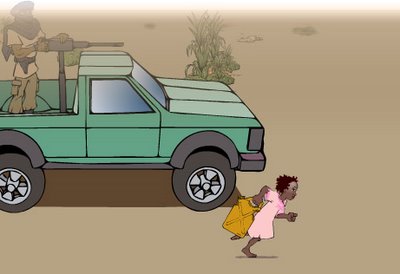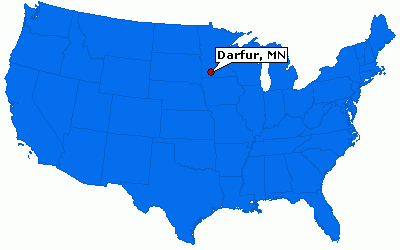
The situation in Darfur is grim.
Former U.S. Senator Rudy Boschwitz (MN) laments that just 7,000 African Union troops are confronting the monumental task of averting genocide in a region of Sudan "about the size of Iraq... or Texas." Meeting with the
Minnestoa Interfaith Darfur Coalition last week, the current UN Human Rights ambassador said, "We despair at what can be done."
Politicians across the political spectrum--from
Sen. Sam Brownback to House Speaker
Nancy Pelosi, and even
George W. Bush--have called the systematic killing, rapes, and destruction in Darfur "genocide," a
crime under international law that United Nations members have sworn to prevent.
So why, almost four years into the current conflict and 400,000 deaths later, are attacks backed by Sudan's government continuing in Darfur? And what can be done to stop them?
A deeper understanding of Darfur's precarious postion shows a complicated confluence of interests and histories--and underscores how elusive hope for stability in the near future is. But as members of the interfaith committee meeting weekly at Minneapolis' Temple Israel or activists at global organizations like the Genocide Intervention Network are finding, there are firm steps that can be taken in 2007. Whether they, if enacted, will make a difference is another matter.
 Darfur 101
Darfur 101Darfur, a region on the westernmost edge of the north African country of
Sudan, is wedged between conflicting factions--racial, religious, economic. The government, based in the north central city of Khartoum, is controlled by Arabs, who comprise around 40 percent of the population. Southern Sudan, home to most of the country's oil fields, is 60 percent African. Ever since Sudan gained independence from the United Kingdom in 1956, the south has sought greater autonomy and control of its resources and has mounted nearly continuous rebellions against the wealthy Khartoum government of the north.
A civil war, ended through pressure by the U.S. and U.N. in 2005, raged for 25 years over allocation of these oil resources, not to mention the tensions arising from nomadic north Sudanese whose camel-grazing needs bumped up against the established farms of the southern part of the country. Further, northern Sudanese are largely Muslim, while southern residents are predominantly Christians and animists.
To complicate matters further, says Dr. Ellen Kennedy, a sociologist and founder of the University of St. Thomas' chapter of the
Genocide Intervention Network, an anticipated secession by the south in 2011 puts the Khartoum government on edge. “The north is trying to get as much money out of those oil wells when the getting-out of those oil wells is good,” she said.
As part of this bid for autonomy, rebel forces have launched attacks on government entities, and Khartoum forcibly rebuked them using
government-backed militias called the
Janjaweed (while its etymology is disputed, the word likely derives from the Persian term for "
warrior":
jangawee). Made up of nomadic camel-herders from the north, these militias, in helicopters and on horseback, have
burned villages to the ground,
raped women, and
terrorized Darfur.

According to survivors' testimony, says Kennedy, "the Janjaweed are actually saying to the people as they are killing them or as they are raping the women over and over again: ‘You are African, you are African, and we are killing all the Africans.’ Ethnic cleansing is involved as well. There’s a lot of raping of the women. In this culture, to rape a woman is to stigmatize her for life: she will never get married, she will be an outcast from the community, and, of course, the child that she bears, then, will no longer be viewed as being an African child. This child, too, will be socially cast out from the community.”
And this is where genocide comes in. The term is defined by the U.N. as "
acts committed with intent to destroy, in whole or in part, a national, ethnical, racial or religious group."
Outside influences
While a comprehensive peace agreement, signed in 2005 but
not yet fully implemented, came about through the dogged efforts of the U.S. and European Union, the most dominant influences in Sudan are not American: China and many Arab states are there for the oil; Russia is doing a booming arms business.
Earlier this month,
The Economist reported on Africa's largest commercial construction site, a 1500-acre, $4 billion development in Alsunut, being built as a campus for Sudan's oil interests, which are predominantly Chinese and Middle Eastern. The first structure going up is a dazzling sail-shaped building that will house the Greater Nile Petroleum Operating Company headquarters. China's insatiable economy requires more oil to grow it, and it takes advantage of weak infrastructures and less-than-ethical governments across Africa (see the
New York Times recent
coverage of China's development "adventure" in Angola) to secure this important resource. As a result, Sudan is prospering because of this demand: this year,
the International Monetary Fund expects the country's Gross Domestic Product to grow by 13 percent. And the north is the largest beneficiary of this growth.
"Russia has all these weapons for sale since the end of the cold war," says Kennedy, and Sudan is a willing buyer. In 2004, Russia announced it was
selling 12 MiG-29 Fulcrum fighter jets to Sudan, as well as Kalishnikov assault rifles and Antonov transport aircrafts. China, like Iran, have been selling arms to Khartoum as well. Amnesty International reports that since the 1990s China's sales to Sudan have included more than 40 Shenyang J-6 and J-7 jet fighters, F-7 supersonic fighters, a Russian MiG-21 Fishbed, 50 Z-6 helicopters; additionally Chinese companies have been contracted to repair Mi-8 helicopters for Sudan.

Witnesses to a raid in the northern Darfur village of Kornoy named these very crafts when they described what they saw:
Two Antonov airplanes, five helicopters and two MIGs attacked our village at around 6am. Five tanks came into town. The attack lasted until 7pm. The inhabitants fled from their homes but our brother-in-law was killed when running away. Eighteen men and two children from our family were killed when fleeing.
Given the extent of these sales, no wonder Russia, which has veto power as holder of one of five permanent seats on the U.N. Security Council (another is China), isn't prone to intervening in Darfur.
Finally, the United States' own relationship with Sudan makes intervention unlikely. Kennedy explains:
We need Sudanese help, presumably, in the "war on terror." For a number of years, the Sudanese government had been harboring Osama bin Laden and al-Qaeda. To alieniate the Sudanese government gets rid of sources of information for us regarding the "war on terror."
Complications of InterventionSo where are the most promising prospects for improving the situation for Darfur's civilians? There aren't many, according to Dr. Stephen Feinstein, director of the University of Minnesota's
Center for Holocaust and Genocide Studies. Because there's little political will to intervene militarily in Darfur and that the U.N. has no military force of its own, he says there's "no possiblity of intervention":
Stopping genocide only becomes possible when it is in the national interest of the country identifying an event as genocide and having the will to intervene. Since the U.S. has a volunteer army that is overextended in Iraq, I don't see any way for the U.S to get involved--hence, one must suggest that a lot of people have been snookered into the belief that something can happen.
That said, he says getting medical and food aid to refugees is key, although it's difficult since "refugees are constantly on the move" and the conflict has become so unstable the U.N.'s World Food Program recently pulled its people from Darfur.
The Minnesota Interfaith Darfur Coalition invited Sen. Boschwitz, the U.S. ambassador to the UN's Human Rights committee, to brainstorm ways American legislators can be persuaded to help in Darfur. Some of the committee's suggestions were problematic. The U.N. can't send in peacekeeping forces without Sudan's permission, and Khartoum says it won't comply. Thanks to Iraq, the U.S. has little appetite for foreign incursions, and even if they did, American troops on the ground would be perceived by Sudan and the Arab world as colonialist aggression. An investigation into
war-crimes prosecution against Sudan's chief perpetrators of genocide launched by the International Criminal Court won't likely get any U.S. support, says Boschwitz, since "we're afraid our people will be hauled in front of it" for alleged crimes committed in Iraq, Afghanistan, and Guantanamo Bay, Cuba.
One area of promise might be enforcing a no-fly zone over Sudan, a tactic supported by George W. Bush and British Prime Minister Tony Blair. The tactic was used in northern Iraq to protect the Kurds, Boschwitz recalled, and since the Janjaweed "inflict considerable damage using helicopters," it could prevent considerable bloodshed. The problem: the U.S. has no airbases in the area.
When pressed by the Darfur coalition, Boschwitz agreed that allies like France and the U.K. might agree to allow U.S. planes to refuel at their bases in Africa. While expressing little fondness for the French--"They're recalcitrant and difficult, but they're still a civilized nation"--Boschwitz conceded, "They may be our best option."
Other than that, a glimmer of hope rests in whether legislators, like newly elected Sen. Amy Klobuchar and Rep. Keith Ellison, along with longtime Darfur advocate Sen. Norm Coleman, could be convinced to create a Darfur caucus that could raise awareness in Congress about the genocide and encourage economic pressure on Sudan. Says Boschwitz, "Pressure does work. The Sudanese will need us for one thing or another at some point."
The other pressure point is China. While it is currently illegal for American companies to invest in Sudanese businesses, a movement is underway to expand divestment to firms investing in China. But given China's increasing dependence on Sudan's oil, little will dissuade them from continued involvement.
"The Chinese get eight percent of oil energy from the Sudanese," Boschwitz says. "They stepped in when we sanctioned the Sudanese. But short of going in with forces saying 'Stop this,' the options go downhill from there."
The Genocide Intervention Network's legislative agenda is far more concrete. Since Congress has little influence over mandating a no-fly zone or issuing war crimes indictments, its focus for 2007 will be in "hitting the Sudanese where it hurts: petroleum," says advocacy director Sam Bell. Its top priorities:
- Denying port entry for oil tankers docked in the port of Sudan (currently, this is a non-binding provision of the Darfur Peace and Accountability Act)
- Pursuing capital market sanctions against PetroChina, which, Bell says "means they would be delisted from the New York Stock Exchange")
- Authorizing state divestment from companies funding the genocide
- Pushing to make US support for the 2008 Olympics in Beijing contingent on China's cooperation on Darfur.
Further, getting more money to the African Union Mission in Darfur is key, so, Bell says, "it can be the backbone of an effective UN force."
In the new year, I will ask legislators to weigh in on these provisions, their ranking in the
Darfur Scorecards, and ideas for, as Dr. Kennedy says, making sure that, when it comes to genocide in Darfur, "'never again' means 'never.'"
Part 1: "
With Darfur in 'freefall,' can Congress transcend partisanship?"
[Map courtesy of
PBS.
Photos by
Linsey Addario]
 While not all that original--Adbusters ran some images a few years back of trash bags covered with the Louis Vuitton logo--I like the sentiment. Rene Gagnon created this "top dollar garbage" stencil as "a statement about the value we put on things because there is a pattern associated with it, coach, gucci, doony and bourke..." It also suggests, from a dumpster-diver's perspective, that there's gold in them thar bins, as fickle consumers toss items they grow bored with or figure it's easier to buy something new rather than fix the damaged old one you've already got. Below, a different artist's logo-covered dumpster from early 2006, via Stencil Revolution.
While not all that original--Adbusters ran some images a few years back of trash bags covered with the Louis Vuitton logo--I like the sentiment. Rene Gagnon created this "top dollar garbage" stencil as "a statement about the value we put on things because there is a pattern associated with it, coach, gucci, doony and bourke..." It also suggests, from a dumpster-diver's perspective, that there's gold in them thar bins, as fickle consumers toss items they grow bored with or figure it's easier to buy something new rather than fix the damaged old one you've already got. Below, a different artist's logo-covered dumpster from early 2006, via Stencil Revolution.





